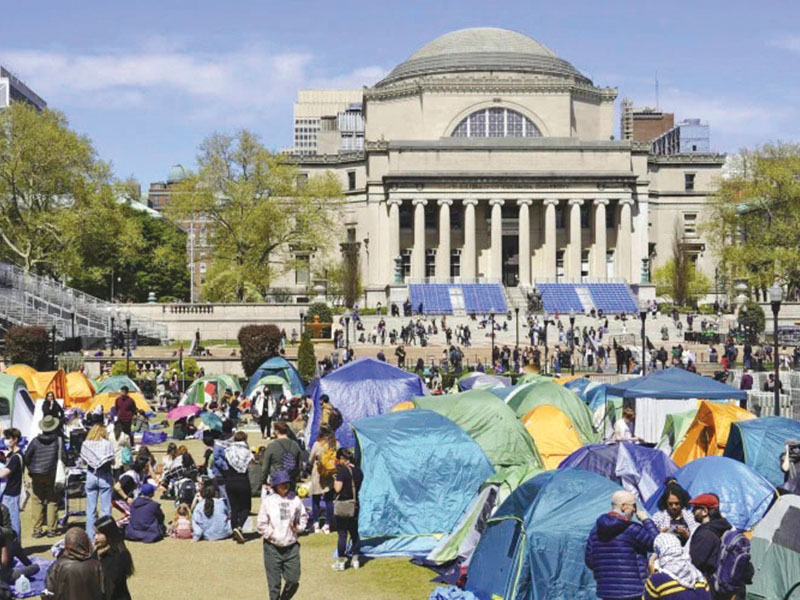United States: Police invitation danger

Students protest at Columbia University
The perceived fairness of punishments handed to student protest leaders will be crucial for whether US universities can heal after police were invited to break up pro-Palestine sit-ins, according to a former college president.
Many staff and students have condemned leaders’ decisions to invite police to campus, notably at Columbia University and the University of California, Los Angeles. In a Substack post, Columbia history professor Adam Tooze warned that many would “struggle to unsee and unfeel” the “violence (that) came from the police side…at the invitation and request of the university administration”.
Nicholas Dirks, former chancellor at the University of California, Berkeley, who was previously a dean at Columbia, says management had been in a no-win situation because “they are either too lenient, for those who complain about, say, anti-semitism, or they are far too draconian, in not defending both academic freedom and freedom of speech”.
However, calling the police “raises the volume” of such complaints, he says. “Such calls invariably lead to arrests that go beyond university codes of conduct and modes of adjudicating violations of them and frequently involve violent altercations,” says Prof. Dirks. “These interactions are now all recorded and circulated on video clips, so they become discursive tools to disseminate arguments about police violence, and, by implication, further evidence of the ill intent of administrators.”
“The healing process will include whether students regard the punishments as fair and, ultimately, whether decisions about students are made with that fact top of mind — namely that these young people are our students and we have a larger responsibility for their welfare, which includes protection around protest,” adds Dirks.
David Smith, associate professor at the University of Sydney’s United States Studies Centre, says some universities have shown how protests could be dispersed peacefully. For instance, the governing body of Brown University showed a way through the conflict by committing to a vote on divestment from Israel if students disbanded their camp. “There’s a long historical experience with protest that when you violently suppress it, you don’t make it go away — if anything, you encourage it,” he says.
Also read: US students protest Biden’s stance on Gaza conflict
















Add comment